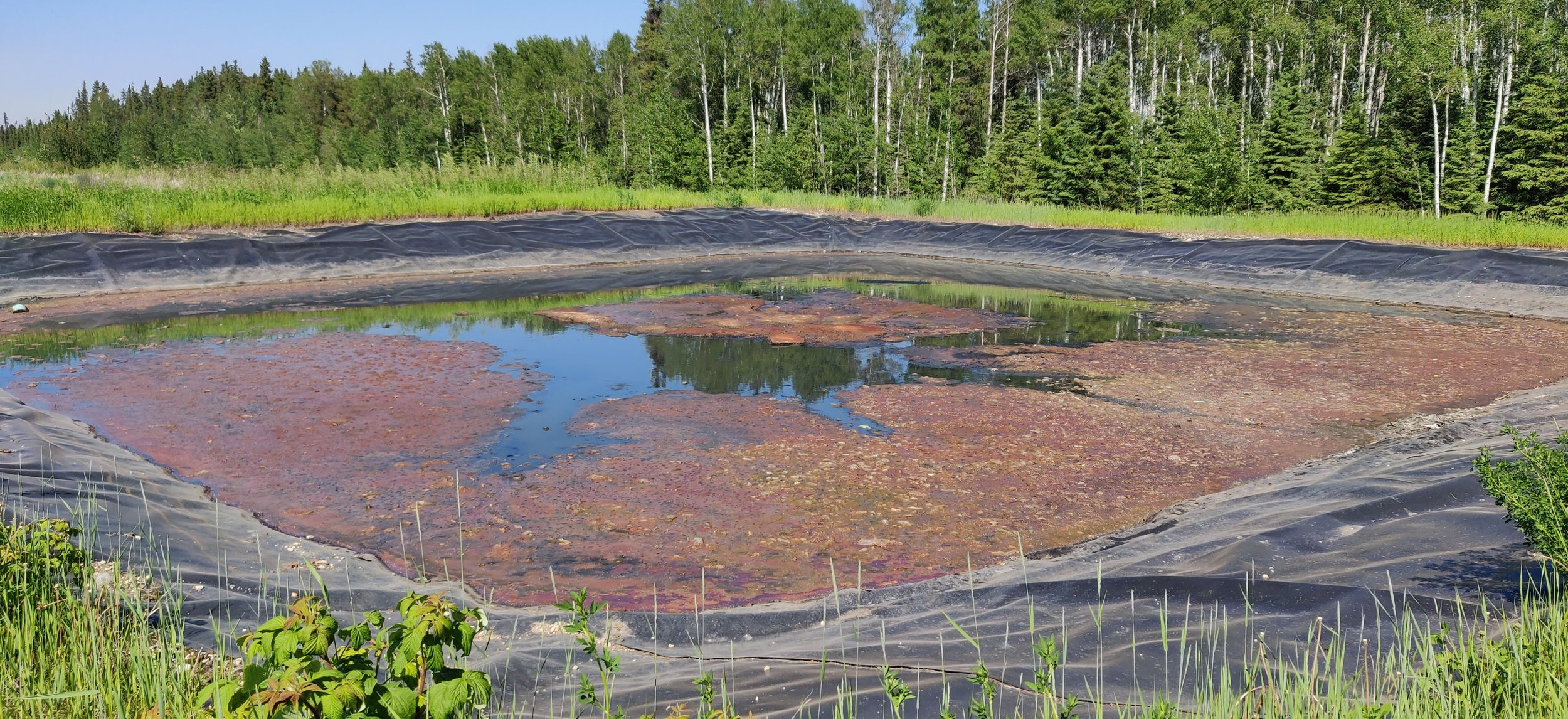How Sludge Build-up Impacts Effluent Quality: A Critical Concern for Wastewater Operators
A Wastewater Lagoon with Significant Sludge Build-up
For both municipal and industrial wastewater operators, maintaining the quality of effluent is a top priority. One of the most significant factors influencing this is the accumulation of sludge in wastewater treatment ponds. Over time, if sludge is not properly managed, the pond’s performance and the quality of the treated water can degrade rapidly.
The Impact of Sludge on Effluent Quality
When a treatment pond fills up with sludge, several negative consequences can arise:
Reduced Capacity and Hydraulic Retention Time: As sludge accumulates, the pond’s effective volume decreases, reducing the hydraulic retention time (HRT). A shorter HRT means wastewater passes through the treatment system too quickly, reducing the time available for biological processes to break down contaminants. This leads to higher levels of suspended solids, nutrients like nitrogen and phosphorus, and other pollutants in the effluent.
Increased Risk of Organic Overloading: Ponds that are overloaded with sludge are less efficient at treating organic materials. Excess sludge can lead to anaerobic conditions, promoting the growth of harmful bacteria and the production of undesirable gases like hydrogen sulfide. This not only degrades effluent quality but also causes unpleasant odors that can be problematic for surrounding areas.
Decreased Oxygen Transfer: In aerobic ponds, sufficient oxygen transfer is crucial for maintaining the health of aerobic bacteria that break down organic material. When sludge builds up, it hampers oxygen diffusion, reducing the effectiveness of these bacteria. This can lead to incomplete treatment and increased biochemical oxygen demand (BOD) in the effluent, a key metric in water quality standards.
Increased Maintenance and Environmental Risks: As sludge levels rise, so do operational challenges. A pond that is not regularly desludged requires more frequent maintenance and can incur higher costs. Moreover, poor effluent quality can lead to regulatory violations, potentially resulting in environmental harm and fines.
The Importance of Proactive Sludge Management
To ensure the long-term performance of wastewater treatment ponds, proactive sludge management is critical. Regular monitoring through sludge surveys and periodic desludging are essential steps to maintaining the pond’s capacity and ensuring that effluent quality remains within regulatory standards. By staying ahead of sludge build-up, operators can prevent effluent degradation, reduce operational risks, and maintain compliance with environmental regulations.
For municipal and industrial wastewater operators, a clean and efficient pond system translates directly into better effluent quality and reduced operational headaches. Investing in sludge management strategies today ensures optimal system performance tomorrow.
A well Managed Wastewater Lagoon


